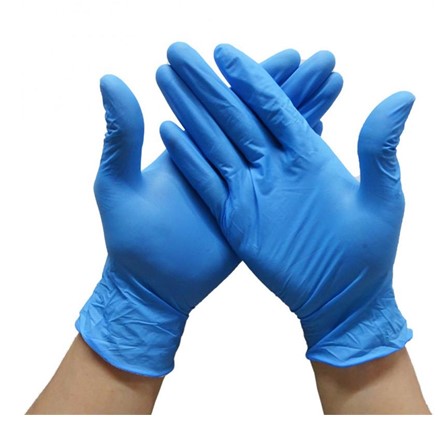Essential oils of cardamom inhibit the formation of biofilms in pathogens

 Rapid 4 in 1 tests for determining the residual amount of neomycin, kanamycin, gentamicin, spectinomycin in milk, whey
Rapid 4 in 1 tests for determining the residual amount of neomycin, kanamycin, gentamicin, spectinomycin in milk, whey PIONEER MEIZHENG BIO-TECH (5 in1) JC1165 / Rapid tests for the determination of the residual amount of halofuginone, flavomycin, novobiocin, flunixin, dexamethasone / prednisolone in milk, whey
PIONEER MEIZHENG BIO-TECH (5 in1) JC1165 / Rapid tests for the determination of the residual amount of halofuginone, flavomycin, novobiocin, flunixin, dexamethasone / prednisolone in milk, whey
In the composition of real cardamom, a group of researchers from the Don State Technical University (DSTU) found natural compounds that prevent the formation of biofilms in Gram-negative bacteria.
Elettaria cardamomum essential oils have been found to address one of the main causes of antibiotic resistance in pathogens. From the effects of drugs and protective factors of the immune system, resistant microorganisms are protected by a layer of polymers embedded in the cell matrix.
DSTU scientists proved that essential oils of cardamom cope with biofilms of Escherichia coli, Streptococcus and Salmonella. Even at a low concentration (0.125%), which is an order of magnitude lower than the lethal for a microorganism, they slow down the formation of biofilms.
Essential oils suppress the so-called "quorum sensing" - a mechanism for regulating the vital activity of the bacterial community, which gives a signal for the formation of biofilms to protect against aggression.
α-terpinyl acetate, 1,8-cineol, linalool acetate, sabinene and some other compounds in Elettaria cardamomum have an antibacterial effect. Based on them, new generation antimicrobials can be created.
As you know, this spice is widely used in the manufacture of sausages. The use of cardamom is provided for in the GOST recipes of such popular varieties of sausages as "Doctor", "Milk", "Veal", "Russian", and sausages: "Russian", "Creamy", "Amateur". And this is not all MEAT products where cardamom is found.
Read together with it:
- New video on our channel: Who produces more horse meat: Mugalzhar, Zhaba, or Novoaltaisk? A test slaughter revealed the truth.A test slaughter and deboning of crossbred horses of three breeds: Mugalzhar, Zhaba, and Novoaltaisk. All stallions are young, 30 months old, taken directly from the herd. The main goal of the test slaughter is to determine which crossbred produces the most MEAT and is the most profitable for business. Kazakh culinary traditions, meat testing, slaughter yield, and meat productivity are discussed. ...
- Meat Perspectives: The Convenience of MeatAs the name suggests, these stores were originally designed to offer a limited selection of food, beverages, and household goods in easily accessible locations with extended hours, making shopping easier. While this remains the primary purpose of convenience stores, the variety of products offered, especially ready-to-eat MEAT and poultry products, makes these stores a highly attractive market for...
- Новые технологии: Продление жизнеспособности спермы быков с помощью стволовых клетокИсследование показало, что применение лизата значительно улучшает сохранение жизнеспособности сперматозоидов, при этом после четырех часов наблюдалось 41% прогрессивно подвижных клеток и 62% морфологически нормальных. В отличие от этого, кондиционированная среда продемонстрировала менее эффективные результаты, сохранив жизнеспособность всего на два часа. Эти результаты открывают новые горизонты дл...
- Demand for sausages is growing slowly, but steadily.Last year, sausage lost out to other types of MEAT products in terms of demand, with production growing by only 1.6% year-on-year, and the growth rate of sausage was surpassed by semi-finished meat products (+4.7%) and even canned meat (+1.9%). But sausage producers have their own significant achievements. For example, Cherkizovo Group, Russia's leading meat producer, increased its sales of sliced...
- Russian scientists have developed fluorescent probes for research in medicine and veterinary science.Specialists from Moscow, St. Petersburg, Yekaterinburg, and Chelyabinsk, with support from the Russian Science Foundation, developed a series of fluorescent probes. They explained that the probe is a tag molecule that can be inserted into a DNA strand for subsequent identification and tracking of changes. This innovative approach was achieved using 1,2,4-triazine methodology. The scientists also s...
- Ham production in the Leningrad Region will expand by 1.3 billion rubles.Investments are expected to total 1.3 billion rubles, with 50 new jobs expected to be created by 2026. Regional Governor Alexander Drozdenko noted that the quality of the products is equal to, and in some cases even superior to, delicacies produced in their countries of origin. The plant in the village of Sinyavino, operating since 1994, specializes in the production of delicacies such as ham and ...
- Growing interest in smoked meats in the Krasnodar region: new trends in the meat marketOverall demand for MEAT products in the region increased by 7.5%, further confirming the growing interest in meat products. Semi-smoked sausages and frankfurters remain the most popular due to their availability and variety of flavors. Although cooked sausages are still available on the market, they are less popular. In addition to the growing interest in dry-cured products, there's also a shift i...
- Супруги из Алексевки открыли домашнюю коптильню и начали производить крафтовую колбасуДля осуществления своих задумок супруги построили отдельное помещение, где оборудовали коптильню. На средства от социального контракта в размере 350 тысяч рублей они закупили необходимое оборудование, включая термодымовую камеру и холодильники. С начала работы в сфере копчения весной у Феданюков заметно возросло количество заказов. Они коптят не только свое мясо, но и предлагают услуги по копчению...
























































